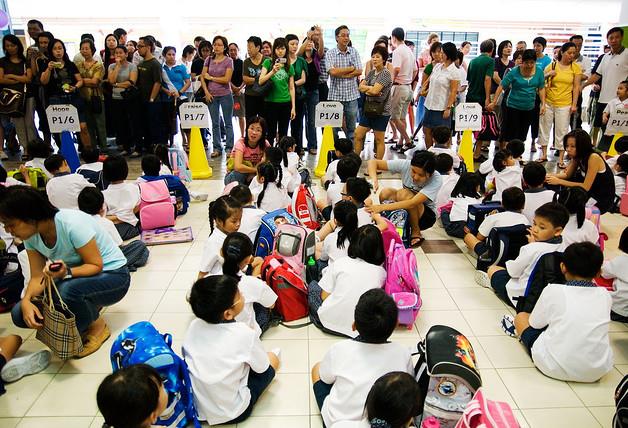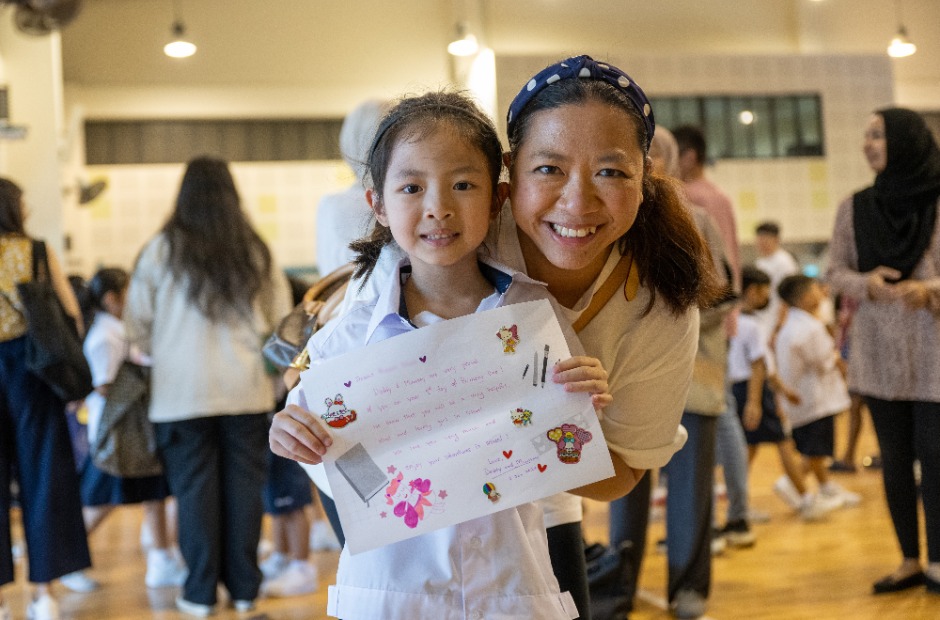Preparing for Primary One
29 Dec 2014

On the morning of the first day of school, as a parent, you would probably find your heart full of mixed emotions as well as your stomach full of fluttering butterflies and excitement at seeing your child entering the next phase of life and growth. Here are some tips on how to help your child adapt to the new routine and school environment.
- Familiarising with the new environment
The larger area of a primary school compound may be intimidating for a child. Attending the school orientation programme, taking a school tour and photos to remind them of the areas would be helpful. Point out to them important areas such as the hall, toilets, canteen and general office. - Helping your child develop a routine
A good starting point will be looking and explaining how to read the school timetable together is a good starting point, as your child will need to adhere to it. Explain and show them how to pack their schoolbag, based on the subjects shown in the timetable. It would also be useful to help them develop an after-school routine, such as setting aside time for homework and play. Having a specific area for school books, materials and clothes will also help your child get used to the new routine. -
Building confidence and independence
Share your personal experiences of school and encourage them to share their feelings. You could talk about favourite teachers, taking the bus, making new friends, lining up at the canteen and so on.Managing money is one topic that children need to know about. Explain to them the amount of money they have as an allowance, how to take care and portion it out for the day or week. Knowing that the money is meant for food will also prevent them from spending all of it on cute stationery.
Your child may feel unsure on the first day, but let him know that you believe in him and encourage him to ask teachers or older students.
-
Listening and relaying information
Schools and teachers often communicate information to children and parents through forms, progress reports or verbal instructions in class. Do regular checks on these forms and let your child know the importance of relaying the information, by passing on the forms or writing the instructions in their student diary. -
Being involved
Lastly, consider joining the school’s Parent Support Group (PSG) or volunteering at the school. Being involved keeps you updated on events in the school and provide you and your child with opportunities to have shared experiences and conversations.
The first day may be eventful, but take a step back and have a long-term perspective. Looking forward to school and enjoying the process will help your child as he begins on this journey of learning.





.jpg)